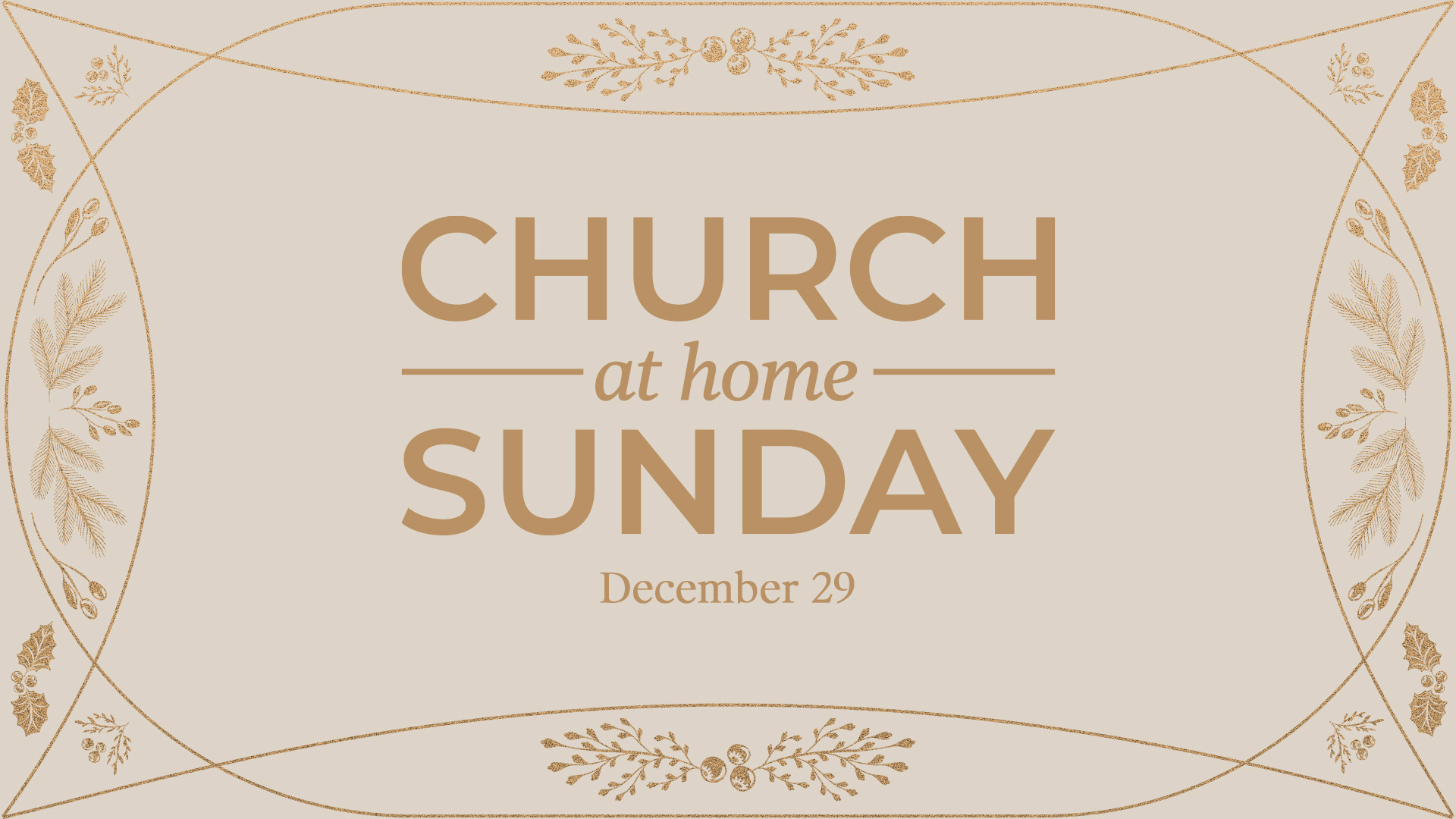At Watermark, “community” is—quite literally—our middle name. Heading into 2025, we want to challenge our members to strengthen their bonds of fellowship. That’s why, on Sunday, December 29, Watermark will not gather on the Dallas campus for our typical services. Instead, we are inviting everyone to host community groups, family, friends, and neighbors in smaller gatherings for a time of reading Scripture, praying, working through a devotional, breaking bread, and planning for the next year. Let’s make a big church feel small with Church at Home Sunday.
How to Prepare
Here’s how to prepare for Church at Home Sunday:
- Reach out to your community group, friends, or neighbors to plan a location and time to meet on Sunday, December 29. We encourage you (and your family or roommates) to invite at least one other person to fellowship with you to strengthen the sense of community at Watermark (Ecclesiastes 4:9-12).
- As you prepare for the day, consider sharing a meal. (Acts 2:42). You could coordinate a potluck brunch, order takeout, or use your gift of hospitality to prepare a home-cooked meal.
- Ahead of your time together, appoint someone to lead the group through the below devotional.
- Finally, pray for your time together—that God would strengthen our church by strengthening our members’ connections to one another (Romans 12:4-5).
Guide for Sunday, December 29
Scripture Reading and Devotional
As a group, begin by reading John 13:36-38, John 18:15-27, and all of John 21 together. These passages address past failures and future calling—specifically, how Jesus responded with love and encouragement after the failure of Peter, one of his most loyal followers. This is an important story for us because we all have sinful failures in our past, and yet God still has a wonderful plan for our lives. We all need the kind of gospel forgiveness and calling that Jesus offered to Peter in this story.
First, notice how Jesus pursued a restored relationship with Peter and the rest of his disciples despite their recent betrayal and desertion of him. The disciples’ compromise didn’t change Jesus’ commitment. Jesus came near and readily offered grace, mercy, and forgiveness to Peter and the other disciples. He is also near to us today and readily offers to forgive our sins.
Next, notice how Jesus invited Peter to affirm his love for him three times. This was an echo of Peter’s past betrayal—when he denied Jesus three times (John 18:15-27). The symmetry of this moment was intentional. Jesus effectively led Peter to hit the reset button on his life. Jesus showed Peter that God’s love, grace, and gospel forgiveness had wiped his slate clean. Peter’s story of failure was transformed into a story of forgiveness and favor. Jesus offers the same transformation to us today.
As a group, read Colossians 2:13-14.
We can rejoice that Jesus forgives and cancels the record of all our sins. To believe that God forgives some of our sins—but hesitates to forgive all our sins simply contradicts the teaching of the Bible. The love, grace, and gospel forgiveness of Jesus have the power to hit the reset button on our lives today.
This means our past no longer has the right to breed shame in our lives. Our past only has the right to breed gratitude for what Jesus has done on the cross to purchase forgiveness for our sins. If we believe in Jesus, our past’s only responsibility is to display the beauty and greatness of God’s grace.
Finally, notice how Jesus once again invited Peter to “follow me” and then foreshadowed how Peter would die—as a martyr for his faith. After this story in John, the book of Acts depicted Peter as a key leader in the early church who refused to deny Jesus even when it cost him his life. Instead of Peter being remembered for his failure, Peter was remembered for his faithfulness. Like Peter, Jesus is also calling us to follow him. We, too, have the opportunity to be remembered for our faithfulness instead of our failure.
As we head into a new year, let’s rejoice that Jesus has extended forgiveness for our past and invited us into a wonderful calling for our future.
Discussion Questions
Discuss the following questions as a group:
- Jesus came near to Peter and showed him love and forgiveness. What evidence do we have of Jesus’ nearness, love, and forgiveness for us today?
- Does anyone have a personal story of failure that Jesus has transformed into a story of forgiveness and favor?
- Is anyone currently feeling guilt or shame resulting from sinful failures? Would you be willing to share? Jesus is near, loving, and ready to forgive. We can pray to Jesus together right now.
- Think of how you want to be remembered. Are there any specific ways Jesus is calling you to follow and serve him and others in 2025, even if it might require personal sacrifice, persecution, or suffering?
Optional Singing
If your group has a musician or vocalist, consider adding a few worship songs to your time together. Don’t think you have to impress anyone with your singing ability; just make a joyful noise to the Lord (Psalm 95:1)!
What's Next?
To conclude, as a group, watch this short video message from Lead Pastor Timothy “TA” Ateek. This video will give you practical tips for how to read the Bible in a year. Then, discuss one another’s plans to participate in Year of the Word at Watermark, starting on January 1, 2025. For more information, check out Join the Journey’s reading plan.
